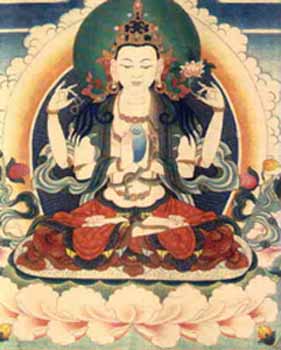
In doing so, i am looking at the religion today. While there are many different varieties of buddhism, such as tibetan and zen buddhism, i am looking at buddhism today in its most traditional sense, deriving their teachings and practices directly from buddha himself.

When looking at this culture, I am really focusing on Buddhism's religious history, and how this religious history both influences and does not influence buddhism today. Religious histories are generally non mainstream, and the history of Buddha is no exception. There is no mainstream evidence or historical documents that show the Buddha even existing. But, in Buddhism, Buddha is by far the most important figure in buddhism. His story had been passed down over time through his followers.

In the book Living Religions, by Mary Pat Fisher, Buddha (first named Siddhartha Gautama) was said to be born 2,500 years ago in India. Buddha was a prince born into a luxurious life. He grew up in luxury, was married and had a son. Despite all of this wealth and ease, he was restless and uneasy, believing there had to be more to life than just wealth. As legend goes, he then saw the "four sights" that the Gods arranged for him.

(the four sights are a bent old man, a sick person, a dead person, and a mendicant seeking lasting happiness rather than temporal pleasure)
While seeking these, he noticed how hopeless life seemed, with suffering, old, age and death eminent. Then one day he saw a monk, and Buddha grew an interest in a life of renunciation. So, he gave up everything he had and left his family, shaved his head, and began pursuing his new goal: finding the way to total liberation from suffering. He tried many methods to find enlightenment, some traditional such as studying with a teacher, and some extreme such as severe fasting, nakedness, and breath retention. Then, he shifted his practice to the "Middle Way" which is neither self indulgence or self denial. He began a period of self meditation, where he began to view life not as a straight line, but as a wheel of repeated rebirth and death, in which bad and good deeds in past lives affect your future lives. After realizing this he obtained enlightenment. He began teaching his findings for 45 years, going all over and giving his teachings to people of all different classes and religions. He eventually died, leaving his teachings to spread across the country, and eventually the globe.

Talking with a buddhist, Aron Sage, I learned about how the buddhist religion today both focuses on the past and disregards the past at the same time. Aron Sage grew up in a convert buddhist family, and he has been practicing meditation since he was 10. He has received his masters in indo-tibetan buddhist studies from Naropa university.
In speaking with Aron, i learned about many different traditions and holidays, both practiced in history, ad now a days. Desak is a holiday that celebrates the day the Buddha was born, came to enlightenment, and died. When celebrating this, people of the buddhist faith place an emphasis on practice and mediation on this day, doing so with a big group of other buddhist followers.
While some cultural and religious practices are derived from the religions history, some are not. "Nowadays, vegetarianism is big in the buddhist american society" Aron says, explaining that this is related to buddhist views of non violence and not wanting to kill animals. However, this teaching was never in historical buddhism what so ever, but instead more of a contemporary concept.
In looking at this religion through a historical perspective you can see not only how this religion follows and doesn't not follow their historical practices, but also how this religion disregards history altogether. I asked Aron specifically if in his opinion Buddhism as a whole was focused more on the past or the future. In response, Aron explained that Buddhism is neither focused on the past or the future, but instead puts most of its focus on the present. Buddhists believe that if you are thinking about the future or past, you are missing whats happening now. Buddhists believe that thinking about anything other than the present is somewhat of an unnatural thought process, that we are meant to be thinking about what is happening now. This is why the religion puts so great emphasis on meditation, because you are practicing thinking about what is happening right now.

Religious histories are extremely important when wanting to communicating with a religion. I feel that in general, knowing about a religions history will allow you to further communicate with people of that religion because you understand the world from their point of view, and thus better communication is possible. The more you know about their religious history, the more you can ask in depth questions about the religions actual philosophies and ideas.
In my third blog, I plan to further investigate this religion, and how this religion is and is not shaped by their religious histories.

I also plan to research further Naropa university, as it is the only buddhist inspired university in the western hemisphere. So far, I've learned that at this university puts an emphasis on instruction and practice, and connects Buddhism with western values using group discussions and projects. I am going to further investigate how this university teaches the history of buddhism, and how much emphasis they actually put on the history, as apposed to practices and traditions, like meditation.

Sources:
Martin, Judith N., and Thomas K. Nakayama. "History and Intercultural Communications." Intercultural Communications in Context. 5th ed. 145-46. Print.
Fisher, Mary P. "Buddhism." Living Religions. 8th ed. Pearson. 135-81. Print.
Sage, Arong. Telephone interview. 28 Oct. 2011.